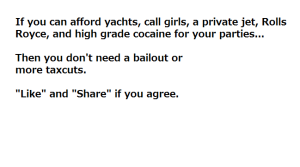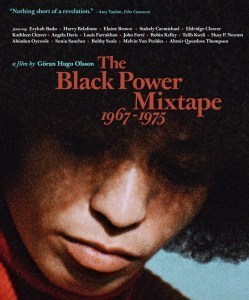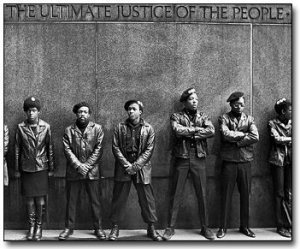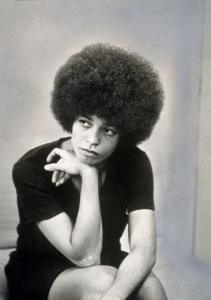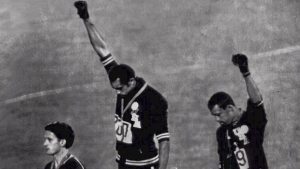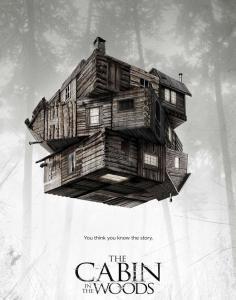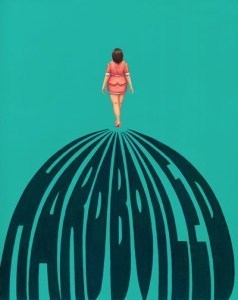Guillermo Galvan's Blog, page 6
October 26, 2012
A review of “Zack and Miri Make a porno”
October 22, 2012
“Amrita” by Banana Yoshimoto: Tokyo pop culture and Magical realism
Amrita is the latest book I’ve finished. What a trip! It’s sort of difficult to pin this one down. All of Yoshimoto’s books read like the dairy of a Japanese high school girl or college student. What keeps her work from becoming another piece of YA (young adult) kid’s stuff is her fascination with death and the psychological depth of her characters. This is her longest novel, weighting in at 366 pages. Something told me there was a special reason behind the extended length of this book. Her other works are much shorter. It sat in my library for months. I’d pass it by wondering if it was the right time to pick up Amrita. My assumptions were correct. Amrita was a bomb of a book that went off in my brain.
The story is told form the first point perspective of a young Japanese girl, Sakumi, who lives at home with her family. The death of two family members greatly impacts everyone. Sakumi later suffers a serious head injury in which she loses her memories. Piece by piece she stumbles upon her old life. This sounds like the plot line of a stereotypical daytime TV drama but Amrita is anything but shallow. The characters are flesh and bone. Even people who only make brief appearances have a complete life of their own. What is so interesting about this book is the strong supernatural element in the book. Everything will seem entirely normal and then something surrealistic will occur, but it will happen in a way that’s eerily believable. It is a place where telepathy and the ghosts of the deceased are just the tip of the iceberg. Yoshimoto weaves a tapestry of reality, and then stretches it until the threads begin to bust. This is Magical Realism.
Amrita was a very enjoyable book that reads very modern despite being almost 20 years old. Sometimes I feel that her writing is better geared towards women readers because of her feminine style. When you read Amrita, you are in the mind of a young Japanese girl that thinks and talks like one. The quality though, is that of an experienced young writer. I believe Yoshimoto wrote this around the age of thirty. The greatest quality of this book is the voice. It is soft but strong. The story puts Sakumi through a lot of pain. The agitation in her soul is clearly reflected in her literary voice. Her inner strength is remarkable. What keeps the Amrita universe going is love. Whether it’s being shared between family, friends, or lovers, love is a central theme in this book. Yoshimoto’s genuine understanding of love allows her to create and destroy it as she wishes. She uses it to paint a sublime canvas. Magical, is how I describe Amrita.
You don’t have to be familiar with Yoshimoto’s older works to fully enjoy this one. Do not hesitate to experience the life contained in these pages.


October 20, 2012
Blowing up houses could save america
When my brother and I were kids, we used to lift weights in the backyard. It wasn’t anything fancy, just a bench press and a few dumbbells. At the time, we lived in Madera, CA, which was hotter than the devil’s asshole. It was so hot that one day, I forgot to bring my radio back inside. When I finally remembered it later that night, the sun had literally melted the face. It reminded me of one of those Salvador Dali paintings with the melting clocks. My brother and I waited until sundown to do our weightlifting in the cool evening.
One day, my father called out to us, “Hey! Your mom needs help bringing in the groceries.” Neither of us were exactly jumping away from the Nintendo 64 to run to the car. Considering that it would be us both who would eat the majority of the food, my dad must have been a little pissed off to see us dragging our feet while grumbling about it. That’s when he looked at us and said, “You expect me to believe that you can lift all those weights but can’t pick up some grocery bags?” My father has a gift of calling bullshit with precise style.
Fast forward about 15 years. I’m watching the second presidential debate with my wife in our small Okinawan apartment. Obama and Romney are slugging it out, each trying to convince America the other guy is a complete asshole. I’m skeptical of what both politicians expect us to believe, but I tend to lean Democrat. The debate ends with Obama being the projected winner. Afterwards, I reflect on what a powerful nation we are militarily and the global influence that is derived from that might. I also get thinking about how downright shitty it is to be living back home. Isn’t that a weird contrast? Power house military, poverty house country. What the hell is that? That’s when the story of my dad popped in my head.
“You expect me to believe that you can lift all those weights but can’t pick up some grocery bags?”
That’s what I’m saying to the U.S. government. Both parties. You expect me to believe we can maintain almost a 1,000 military bases worldwide in 130 nations but you can’t take care of 50 states? Let me make myself clear that I’m criticizing the U.S. government and not our servicemen and women, who are slammed hard by these inadequacies. I’m sure Obama and Romney would have some sly response filled with nationalistic rhetoric that sounds like the right thing to say. But like my dad, who watched his two weightlifting sons bitch and moan about lifting a few grocery bag out of car, I call bullshit on every excuse they give. I’ve seen what our government is capable of doing, fixing America is not out of their reach by a long shot.
I suggest we begin a new campaign for the armed forces. We’ll send them into the worst ghettos in America and have them destroy all the shit-hole houses and embarrassingly old schools, then build a ton of new ones. Why stop there when there’s so much work to be done? We could prop bases that feed all the homeless people on the street, especially the countless who are veterans, and give them a hand to regain their shattered lives. This new military could take volunteers from all the Americans who have found a rejuvenated sense of patriotism. The government could even weigh in with the first real bailout in history, by restoring all those foreclosed homes lost by unchecked corporate greed. Unlike the last bailouts, which were more accurately an act of pillaging, let’s hold those we help responsible with a fair deal of, “we’ll help you if you help us.” That way we all become stronger.
You can look at my vision and laugh. Say it’s unrealistic. My question to you is, why? We’re the most powerful nation on the planet, why can’t we make this happen? And if it’s not a question of capability, but of political foot dragging, then maybe we should stir up some motivation. And if it has to do with downright corruption, then those individuals are traitors. Run them down like stray dogs and bring them to justice. What I am proposing is a return to our interests, the interests of ordinary Americans. You get what I’m saying?


October 14, 2012
“The Black Power Mixtape 1967-1975″ is the yearbook of the revolution
The Black Power Mixtape 1965-1975 is one of the most spectacularly moving documentaries of radical American history released in 2011, and is sure to be like nothing you’ve seen before. The documentary is composed of film shot by a Swedish news crew following the Black Power movement through the socially explosive era of the 60’s and 70’s. The news reels sat forgotten in a basement archival storage for over 30 years until Swedish documentary filmmaker Göran Olsson brushed off the dust. His resulting work won a Sundance Film Festival award for editing.
What I enjoyed about this documentary was the style. Man, was it cool. It takes the revolutionary spirit of those times and makes it contagious. You can’t help but feel yourself get caught up in the sense of urgency. I do admit, I was tempted several times to throw up my fist. The original Swedish crew takes the viewer deep into the Black Power movement by visiting the Black Panther headquarters in Oakland, the liberation rallies, Harlem ghettos, and prisons, to show the period in its rawest and most unapologetic form. The interviews are charged with the turmoil of a society divided by racial violence. Some of the un-politically correct statements are sure offend some viewers. We get to hear directly from leaders in the revolution speak out for themselves in their manner that is so iconic to the 60’s and 70’s. There are appearances by civil rights giants such as Martin Luther King Jr., Malcolm X, Huey Newton, Bobby Seale, Angela Davis, Eldridge Cleaver, and Stokely Charmichael. Angela Davis’s interview is undeterred despite being conducted while incarcerated. Her fierce intellect still has the passion and power to move even the newest generation.
Don’t expect a concise depiction of the Black Power movement. As the name implies, it is more of a mixtape highlighting the movement’s greatest hits. The soundtrack itself is a mixtape of the soul, funk, and jazz that embodied the era. While many critiques dwell on the lack of historical cohesion, they miss the point that this documentary is supposed to function similar to a time capsule. Either way, the Black Power movement is far too vast and complex of an American phenomenon to ever be explained in 100 minutes. Even the interviewees towards the end urge people to read because “Knowledge is king.” The only problem I had with the film was that the modern commentators were almost exclusively recording artist rather than political activist, social scientist, or university professors. Yet the film is never lacking in message.
The Black Power Mixtape 1967-1975 is a super stylish film that makes it fashionable to be intelligent again. It’s a motion picture scrapbook put together by this generation from the memories and history of another. This history is a troubled history, it will engage you directly. You can’t help but feel activated to continue the struggle for a more equal world. I hope you watch and enjoy this great documentary. Let me end this review by honoring all those in the fighting against fascism everywhere. Power to the people.
[image error]


October 13, 2012
book review policy
For everyone, please provide me your name or pen name, a picture of the book cover or art, a link to your website and/or work, and a short bio, if you have one ready.
For writers, please mail me your paperbacks. As much as I’d like to save paper, I’m slow at reading e-books and I’d like to pass on my paperbacks to other advent readers. Please email me for my address at ismaelggalvan (at) gmail (dot) com.
I’d prefer to review indie or self-published writers, but I’ll review almost anyone. Genres that will not be accepted are: sports (outside of basketball), non-fiction, historical, romance, suspense, YA, Chick Lit, and self-help (case by case).
Preferred genres: Gutter Surrealism, Sci-Fi, Counter Culture, Radical Philosophy, Bizarro, Urban Fantasy, Dystopia, Social Commentary, Anti War, Drug Culture, Anti Neoliberalism, Anti Fascism, 60′ and 70′s Revolution, War Experiences, Gonzo, Noir, Magical Realism, Zombies, Horror (NO Twilight style books!), Violence, Action, Crime, Chicano/Black Lit, Post Apocalyptic, Dark Comedy, Gang Culture, Anarchism, and Controversial Lit.
I will also write reviews on artist, especially graffiti/social artist. I have Bachelor’s degree in Art History and Theory.
All reviews will be posted on this blog, Goodreads, Facebook, and Amazon (if applicable). I will deliver a review appropriate to the work’s content, plot and character development, and overall style. I’m not a stickler for grammar (yet I am an English teacher), but please make sure your work(s) follow correct English grammar. My review will reflect that as well. And don’t forget to put “Re: Review of (title)” in the email subject.
I will not write a negative review. My objective is help writers, not destroy them (I’m not an asshole). If the book is not for me, I will pass it onto another reviewer.


October 9, 2012
reflections on the occupy movement and what protest means today
It was about a year ago that the Occupy movement spread worldwide. Millions of people participated in the protest against global economic inequality. Their rallying point was that the top 1% is accumulating too much wealth, and primarily through exploitative means. There is vast evidence to support these claims. The world is not a very friendly place, I’m sure you already know. So I agreed with their cause and was interested to see how it would develop. I expected an anti-protester stance by the government and corporate world, but what truly shocked me was how the general public reacted. Ordinary people (not all, there was massive support) began bashing on the movement against corporate greed. Even some of my politically apathetic friends began posting “facebook bumper stickers” against the protesters. When the powers that be had enough and ordered the police in to smash the movement, those same people felt America had won some type of battle. In fact it did, but for who?
The Occupy movement failed to bring about any significant change to the global economic system. People are still being exploited for labor and the presidential debate hardly addresses the growing inequality of the 1%. Yet the movement brought to light a disturbing aspect of our government, that future mass protests will most likely be met by the same repressive actions and possibly be intensified. Furthermore, the violence shows that the government has clearly sided with Wall St. The fact that all this happened while our troops were off dying for “freedom” only adds to the hypocrisy of it all. Any meaningful social action against abusive government/corporate practices will be ignored in the least and will be met with raw violence if necessary. Keep in mind that the Occupy movement was largely a nonviolent movement.
Tiananmen Square Massacre, 1989. Chinese protesters rally against government/corporate corruption. This footage is a haunting reminder of the Police State any government could become. Warning: the following BBC broadcast was recorded live on location and contains graphic images of violence and death.
This is not an isolated incident. And if you care enough to read further into the history of Neoliberalism, you’ll find that the Occupy movement is actually a continuing development from what you just watched. A true democracy must tolerate the most unpopular protests or degrade into totalitarianism. Advocating official government repression silences all people.
The government’s decision to suppress the Occupy movement by police force rather than open debate has lead some people to question adherence to nonviolent tactics. In the face of increasing police aggression, a growing number of people are turning to Black Bloc. It is a protest tactic in which a unified mass all wear black clothing and conceal their identities. They use extreme measures such as graffiti, rioting, and destruction of private property, as forms of direct action against the corporate establishment. Mob mentality is preferred and the group is known to be strong advocates of Anarchism.

Whether Black Bloc is an effective protest tactic or counter intuitive to petitioning the government for authentic change is hotly debated. What remains certain is that methods like Black Bloc are a reaction to government’s reluctance to engage the people’s concerns of corporate abuse, and the outright assaults on peaceful protesters only encourage more people to turn away from pacifism. After the inadequate results of 2011′s massive Occupy movement and the government’s brutal repression tactics, the question of what protest means in the United States remains uncertain. The solutions will not materialize themselves from nothing. These Ideas will be born from rational and intelligent debate that is protected by our right to free speech. But all the free speech in the world means nothing if our minds are empty and lethargic. Read books, ask questions, seek out information, and challenge propaganda. Most importantly, see that there is a problem. Both sides will need to evolve as the growing, unresolved tension foreshadows the violent extremities of the not so distant past.
Thank you for reading. Feel free to like my facebook page for more of my posts. http://www.facebook.com/BlubberIsland Please share!


October 8, 2012
“cabin in the woods” takes the horror genre for a spin
When I first saw the poster for Cabin in the Woods, I immediately expected another cookie-cutter horror movie. There’s been a trend in Hollywood of passing off supposed “horror movies.” Flicks that center on a group of Abercrombie & Fitch-type beautiful people. If you’re a true horror fan, then you know exactly the kind of garbage I’m talking about. The shame is that I’d actually love to see these airheads get butchered. I never bothered watching them because I know some gutless director will decide that right when the chainsaw is about to give Biff his worst haircut, it’ll be the perfect time for the camera to pull away. What kind of shit is this? I want to see buckets of blood and dump trucks of guts colliding with busloads school children then sprayed with a flamethrower. A lot of these new movies fail to fill in this void for me.

Looks legit.
So I passed up Cabin in the Woods and filed it in my head somewhere near, “I’ll need to take a shit later.” Later, I heard from some reliable sources (my two stoner sisters and a friend) that Cabin in the Woods is chicken wings dipped in mescaline. Could it be, a new horror movie that doesn’t completely suck balls? I was hesitant, but I decided to roll the die and push play.

“So you’re saying we’re all cliches and going to die?”
Cabin in the Woods opens up like a textbook generic not-scary, scary movie. A group of college students are preparing for a trip into the woods and you can point out their characters: “the jock,” “the slutty girl,” “the shy girl,” “the loveable stoner”–you get the picture. And off they go off in their RV. While all this is going on, there are some scenes of corporate douchebags up to something that gives you the feeling of Resident Evil’s Umbrella with The Office’s work staff. The group of college students reach the cabin and proceed to do what all college students do in every scary movie. The whole thing feels like such a worn-out cliché that I’m wondering if I didn’t get led astray. Then—the hot steamy shit hit the fan and sprayed all over my face!

“We need some horny, boozed up college students. Trust me, I know what I’m doing.”
During the entire “shit spraying phase,” I kept shouting, “This is so fucking cool!” Even my wife, who absolutely hates horror movies, had to ran into the living room (without a sandwich and beer, I’m still working on that) and actually watched the rest of the movie. I really got to hand it to the writer/director team, Joss Whedon (Dollhouse) and Drew Goddard (Buffy the Vampire Slayer). They understand not only what makes an awesome monster, slasher flick, but also satirize the whole “not scary, scary movie” trend in a surprisingly intelligent and effective way. The standout performance by stoner guy, Franz Kranz, and his “blunt” weapon of choice was hilarious. And, oh, man, the motorcycle scene is sure to inspire plenty of pointing and laughing.

Gotta pick the right tool for the job when dealing with undead.
I hope Cabin in the Woods is a smash hit in DVD sales so that the other writers and directors can finally get the memo that we don’t need another Scream/Twilight piece of shit. Since when did “cool” become “uncool” or the other way around? This movie settles the question and writes it in stone, “cool is fucking cool,” and don’t let anyone tell you different. Rent this movie, invite some friends over, bust out the collapsible bong, and have a have a kick-ass movie night. I’m definitely looking forward to more imaginative horror flicks like this one.



October 7, 2012
“Hard boiled wonderland and the end of the world” Japanese cyberpunk with a noir twist
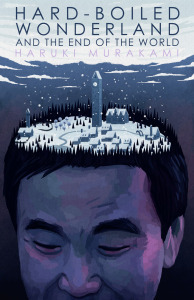
Prepare to trip balls.
Murakami Haruki’s Hard Boiled Wonderland and the End of the World is imagination dynamite. The story opens up with a sci-fi, noir attitude told from a Japanese perspective. My immediate impression was, “This is gonna cool,” and it was. Haruki throws a bit of everything into the pot: surrealism, mystery, metaphysics, magical realism, to name a few. The story itself is one of the most strangely unique I have ever read. I think Haruki enjoys messing with our heads. He’s aware of the tired-out clichés and sets you up to believe you know exactly where the book is heading, then busts your bubble and blows your mind. For a book that was written back in 1985, it reads like a bestseller hot off the press. If Franz Kafka was into cyberpunk, occasionally took hard drugs, and reincarnated as a Japanese man, he’d probably write something like this.
The story is such a bizarre odyssey that I wouldn’t dare spoil any of it for you. I can’t even tell you the general plot–it’ll ruin the surprise. I’ve read some reviews of this book, and all I can say is that I’m glad I read the book first and avoided the spoilers. It does have some hardcore cyberpunk elements and Johnny Mnemonic did come to mind–but was much more than that. The book has an amazing sense of duality. When you first come across this, you’ll wonder what the hell is going on. As the story progresses, Murakami weaves a dangerously magical world that breaks the spine of traditional modern writing. It’s a gritty fairy tale that you’ll fall into like a deep well. His use of Gutter Surrealism is masterful. This review is vague, and I apologize. But once you begin Hard boiled Wonderland and the End of the Word, you will see my intentions were sincere. Murakami drives his imagination like a stolen car in this book. I suggest you get in and enjoy the ride.
The end of this book stunned me. It was the type of conclusion that sort of breaks your heart and leaves you with the feeling that a longtime friend and lover had disappeared from the planet. I’ve taken reconciliation in the fact that Murakami’s other works contain the same magical nature I was introduced to in Hard Boiled Wonderland. I loved this book and I hope this review inspires you to read it too. Despite Murakami’s international acclaim, he remains largely unknown to American readers. This I cannot accept. Magic Realism of this caliber should be shared to everyone. Let’s all trip out together.


October 4, 2012
“Who you going for in the race?” A jibs short story
Jibs took a seat at the bar. “Give me an Orion,” he said to the bartender, who acknowledged him without a word. It was early enough to beat the crowd, just like he wanted. In a few hours the place would be jammed up with all the regulars and it’d be business as usual. Jibs was tired of being in his apartment. It was a few weeks before the presidential election and his head was boiling over with politics. Part him cared, the part that wanted something significant to happen. But he was convinced regardless of what candidate won, nothing would really change. Elections had too much flare and that’s what made him suspicious. The bartender returned with a can of beer and bowl of peanuts. ‘Not bad. Most places charge you by the peanut,’ Jibs thought.
“Who you going for in the race?” The bartender asked. He was a big man with large hairy arms and a smile like a liver. Jibs pulled the tab on his beer. “I don’t know yet,” said Jibs before taking a cold drink. The beer was good.
“You mean you haven’t made up your mind? The election is just a few days away.” The bartender stared hard at Jibs as if he was trying to remember him from someplace. “I’d say you’re a Democrat!” He proclaimed. “Yup, I can spot one from a mile away. Tell me, am I right?” The bartender stared at him. His eyebrows looked like mustaches above each eye. Jibs looked at the man, caught in a moment of indecision.
“Ain’t no shame in it. I’m a Republican myself and naturally I wouldn’t agree with everything your party stands for. But that doesn’t mean I hold anything against you. Party lines make us stronger, ya know?”
‘Party lines make us stronger’ was the official slogan of this election. It was the government’s way of encouraging active debate amongst citizens. Whether it was within your own party or between another, every news channel, radio station, newspaper, and website proclaimed “Party lines make us stronger.” Everywhere Jibs went he was sure to hear some political pickup line. He looked like a Democrat and so people seized on that to open a discussion. The conversations were nothing more than a battle of rhetorical platitudes. Somebody would remark on the manner of how a candidate answered a question, rather than what he actually said. And the other would counter with an insight into how their party values job creation and tax revenue only second to a strong country. Jibs was tired of it.
“So am I right?” the bartender prodded Jibs again. This time he slightly leaned in with his mustache eyebrows twisting in.
“I’m undecided,” replied Jibs with a lack of enthusiasm. The beer cooled the tips of his fingers.
The bartender leaned his big head a bit to the side and curled his lip skeptically. “You’re telling me you’re not a blue blooded Dem?” he asked in a skeptical tone.
Jibs could already feel where this conversation was going. In fact, it was already in full swing. Jibs wished he would have just played along in the first place. Instead he opened himself up for a complete dismantling. Jibs reached into his coat pocket and pulled out a cigarette. The bartender became stiff.
“I’m sorry sir but there’s no smoking here.”
Jibs held the cigarette for a moment. The bartender waited for him to put it back into the pack. He rolled it around his fingers once then pressed it between his thumb and forefinger. The tobacco condensed under the pressure and the bartender continued to stare. Jibs didn’t know what he was doing. Part of him wanted to snap the cigarette. What would the gesture even symbolize? The bartender waited for Jibs to put away the cigarette. The president of the United States and the opposing candidate appeared on the television above the bar. An ocean of spectators mashed together at the national debate. There was a tension growing tighter between the two of them. The bartender wanted to speak but kept his mouth shut as if the air itself would rip at a noise. Neither of them spoke.
Jibs wondered how everyone could talk but nothing ever be said. How did everything get so boring? So mind numbingly dull. Everyone was like the pad of a thumb, ordinary and virtually indistinguishable from all the others. It didn’t matter what words were being used because it was the same thing being said. An open debate of birds making sounds in a park. Sometimes they’d peck each other and then an great hand threw fistful of breadcrumbs. Wings beat and beaks slammed downward for the scraps.
The cigarette broke in his hand. Tobacco spilled between his fingers onto the bar. “Excuse me,” Jibs said and used a napkin to clean up the mess. “I’ll take a beer,” Jibs ordered.
“But you haven’t finished that one yet.”
Jibs pulled out a gun and shot the bartender between the mustaches. It had been three years since the flag of the United Sates had been changed.


October 3, 2012
Your iPhone and 2,000 Rioting Chinese Workers

The footage above is of a riot at the Foxconn facility in Taiyuan, China on September 24th, 2012. It’s been reported to have started at the overcrowded dorm rooms (eight to ten people may share a room). The horrid working conditions have been driving workers to the edge. Several have even jumped to their deaths out of desperation, but instead of improving work conditions, Foxconn decided to go with suicide nets. I’m sure this was the more cost effective route.

This isn’t the “social safety net” most have in mind.
The guards had been bullying the workers continuously. “Bullying” is probably an understatement because it was enough to piss off 2,000 Chinese workers into brawling with these pigs. So who’s the bad guys here? I personally enjoy watching riots and tend to root for the home team. The authority figures tend to come fully equipped with the latest in hippy bashing technology. This automatically gives them the edge, further encouragement would unnecessary and thus somewhat ridiculous. A rioter has think outside the box in order to turn everyday items into potential weapons. I am a fan of ingenuity. Not everyone sees it this way.
David Barboza and Keith Bradsher of The New York Times offered their probable explanation for the explosive anger turned riot.
“Disputes involving large groups of migrant workers are common in China. In some cases, workers protest after believing that they have been promised a certain pay package and traveled a long distance to claim it, only to find on arrival that the details are different from what they expected. In other cases, workers from different provinces with different cultural traditions coming together in a single factory have clashed over social issues or perceived slights.”
I think they could be onto something. Workers heard of good pay being offered for assembling world-famous Apple products, only to get there and find:
-Excessive overtime without proper compensation
-The occasional 24 hour work shift
-Overcrowded living conditions
-Poisonous chemicals
-Factory explosions
-Asshole security guards
-Suicidal depression

Expect the unexpected.
As for their second reason, “workers from different provinces with different cultural traditions coming together in a single factory have clashed over social issues or perceived slights.” This explains everything! Why didn’t anyone inform Foxconn that Chinese people are racist against Chinese people? I can just hear the hate slogans: “We keep taking all our jobs!” Man, I’d be pissed, too. As persuasive an argument that David Barboza and Keith Bradsher make, I can’t accept this for one simple fact. How could they hit anyone if they all look alike? Fuck around, and you might end up kicking your own ass! No, this just doesn’t add up. David Barboza and Keith Bradsher are not journalists. They write anti-worker bullshit to reassure rich cocksuckers that they won’t burn in hell with the rest of the slave masters. Let’s hear it instead from somebody who actually works there.

This worker says she makes less than a dollar an hour. That means for the price of hiring one Mexican illegally, you could get a whole fleet of Chinese workers. They probably wouldn’t bring their own gardening tools, but at least they wouldn’t be blasting mariachi music, right? Give and take, my friend, give and take. Honestly though, less than a dollar an hour? Even hobos begging for change make more than that and on a slow day. So who’s calling the shots? Let’s meet the piece of subhuman shit himself. Introducing Terry Gou, Chairman of Hong Hai Precision (mother company of Foxconn). According to Forbes, he rings up for a net worth of $6.3 billion dollars.

“I give these many shits about my people.”
Apple has always modeled its corporate culture on having a somewhat hippy attitude. This most likely comes from founder, Steve Jobs, who is known to have dabbled with LSD and even encouraged others to fry balls in order to find groovy ways around creative obstacles. He is remembered for being a man of boundless ideas–that is, until he’s faced with the problem of human rights abuses in Apple assembly lines. It’s sort of weird seeing him go from guru to yabbering douche bag in under five seconds.

Straight from the horse’s mouth. The company knows what’s going on in the China factories. So what did Steve Jobs say in response to the suicide inducing work conditions? In so many words, he nicely said, “Fuck them. I’m rich, bitch.” At least that was my interpretation. Steve Jobs died a greedy $36.1 billion asshole. Anyone who can’t see that must be high on acid.
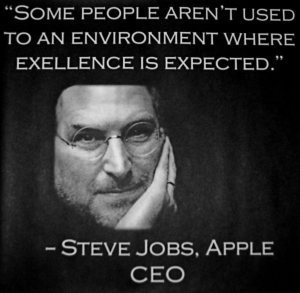
“Now get back to work or kill yourself.”

“Yes sir!” (Fatal explosion at Foxconn)
So what’s the point of all this? No, I’m not going to start advocating throwing away our iShit. I have all my music on iTunes, why the hell would I do that? Instead, I want you to remember the slogan, “Made in USA.” You have to remember it because it’s quickly becoming a relic of the past.

Never Forget
Virtually all Apple products are manufactured overseas by millions of workers like the ones at Foxconn then sold in the US at record breaking figures. What would those millions of jobs mean to Americans in hard times like now? When Apple was asked why it doesn’t manufacture in America, they gave a whole slew of how Chinese companies have out performed American craftsmanship and are more cost effective. On some level this is true, but it’s only possible by breaking the law. We have rights and regulations that protect us from things like “24-hour work shifts” and “less than a dollar an hour wage.” The solution has been to lobby (bribe) government officials in order to “relax” restrictions and create tax incentives for sending manufacturing jobs to other countries that tolerate labor abuse. America loses jobs, workers in other countries are exploited, you put the iShit on your credit card at marked-up interest rates, and the Board of Directors get their chubby little Christmas bonuses.
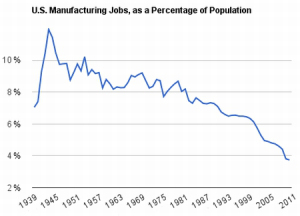
Forbes Magazine reports 39% drop in American manufacturing jobs since 1979.
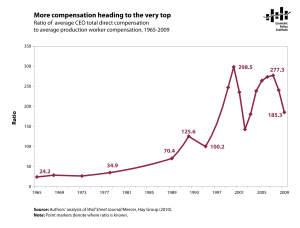
Great time to be a CEO. Where can I apply?
It’s these same people telling us, “Hey, nothing personal, just business.” They claim fixing the economy isn’t their problem, as if the sky high unemployment rates had nothing to do with the millions of jobs strategically shipped overseas. Yet, they wish for Americans to continue purchasing their products, for police officers to arrest the thieves who would rip off their merchandise, seek copyright protection and tax breaks under US laws, and the security of the United States’ armed forces.
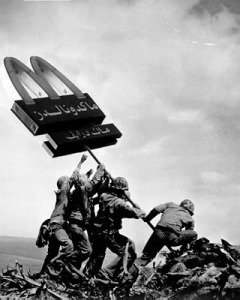
This should offend you.
These abusive economic practices hide behind deceptive terms such as “Free Trade.” It’s a global scam that amasses wealth in the hands of few at the expense of workers everywhere. Neoliberalism, as it is called, is transcending beyond Republican and Democrat party lines. Our government as a whole has been getting on the “profit over people” track. You have rights and interests as a worker. Those rights are being stripped away through a big business agenda who wish to have Foxconn conditions here at home.
The first thing you can do is simply be aware. Don’t rely exclusively on television to inform you. There are plenty of writers you can check out. I’d recommend Noam Chomsky as a great starting point. I hope you’ve enjoyed my introduction to Neoliberalism and Globalization. Now get back to your iLife.
Feel free to comment and question anything on this post. I’m always happy to recommend additional writers, books, and documentaries.









